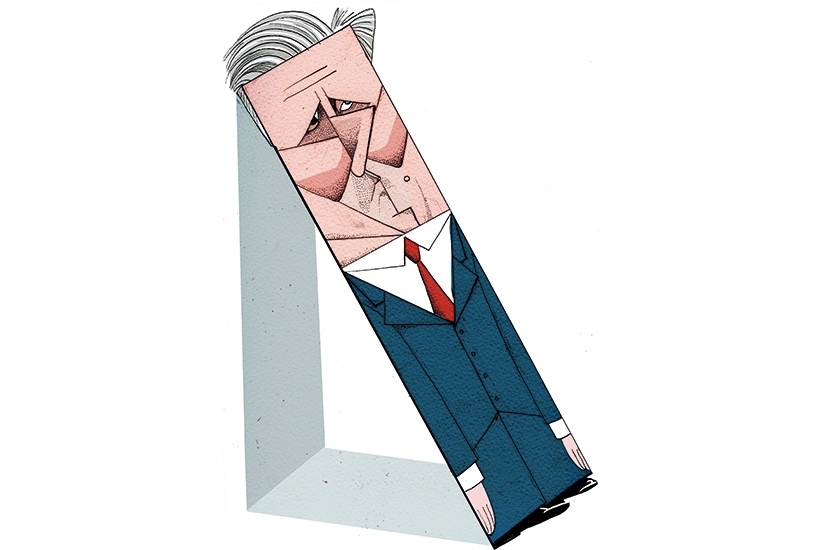Being at the launch of the 1997 Labour manifesto and watching the shadow cabinet take to the stage is one of my abiding memories from more than 20 years spent as a lobby journalist.
Even setting aside the star-turn Tony Blair, it was a veritable march of the big beasts — Gordon Brown, Robin Cook, Jack Straw, David Blunkett, John Prescott, Mo Mowlam. All of these people were major players with large followings and massive public profiles.
The less central figures also passed muster, including George Robertson (later a fine Nato secretary general), the ever-popular Donald Dewar, the clever and well-spoken Alistair Darling, suave Jack Cunningham, Margaret Beckett and Ann Taylor — solid contributors both — and that happy bruiser Frank Dobson.
Mowlam’s physical appearance that day — she was wearing a wig to compensate for the effects of radiotherapy and had put on weight from steroids — provoked a major story, with the Daily Mail describing her as ‘losing the battle of the bulge’ and her revealing soon after that she was being treated for a brain tumour. Like most of her senior colleagues, Mowlam wasn’t just a politician, she was also a celebrity and had to deal with the level of media attention that came with that billing.
Starmer desperately needs his shadow ministers to improve
Beyond Keir Starmer, which of the current crop of shadow cabinet members could one say that about? Shadow chancellor Anneliese Dodds has made a slight impression on the public consciousness, but mainly as an object of ridicule. Deputy leader Angela Rayner has properly hit the headlines only twice; once for saying something obnoxious and once for looking slovenly. Emily Thornberry appears to have been locked in a cupboard somewhere after displeasing Starmer during the leadership contest. There are a couple of middleweight retreads — David Lammy and Rachel Reeves fit that category — Jonathan Ashworth seems a decent chap at health and then there is Ed Miliband.
But Lisa Nandy has flopped as shadow foreign secretary, the shadow home secretary Nick Thomas-Symonds is little-known and several other members are at risk of falling victim to the old joke about not even being household names within their own households. Perhaps you have read of the exploits of Jo Stevens, Luke Pollard, Marsha de Cordova or Preet Gill, but I certainly haven’t.
No wonder then that when the pollster Ipsos MORI asked its occasional question of voters this month about which party they think has ‘the best team of leaders to deal with the country’s problems’, Labour was trounced. The answer came back Conservative 41 per cent, Labour 21 per cent.
And remember that Boris Johnson hardly has one of the historically great cabinets sitting around him to advise on steering the ship of state.
This matters. A lot. In fact, looking back through Ipsos MORI files at how this question has been answered down the years leads to the arresting discovery that the party coming out on top always wins the subsequent election. Labour was miles ahead in 2001 and 2005. The Tories had their noses well in front in 2010 and before the 2015 election.
Most startling is the finding from the start of the 1997 campaign: Labour 40 per cent, Conservative 20 per cent — the biggest lead the series has ever recorded for an opposition over a government and an almost exact reversal of the current state of play.
That Labour ‘golden generation’ is of course long gone (though there is always Nick Brown — chief whip then and chief whip now) but the dearth of talent available to Starmer is shocking. The Brexit years were particularly unkind to the party. Many of its better media performers have either walked out or been pushed out of the Commons — Chuka Umunna, Caroline Flint, Luciana Berger, Ian Austin, Jenny Chapman and Tom Watson spring to mind.
Then there are those who have decided to pursue other projects like Yvette Cooper preferring to chair a select committee or Andy Burnham and Dan Jarvis choosing to run northern fiefdoms.
Being a wooden performer himself, going into the next election with just 200 MPs rather than the 270 plus that Blair had in the bank pre-1997 and leading a party wedded to values alien to most voters were already formidable structural handicaps for Starmer.
Being seen as an underwhelming one-man band comes on top of all that. He desperately needs his shadow ministers to improve. Perhaps he should set each of them a challenge to find a single totemic issue within their portfolios to connect with voters and project themselves. For starters, why isn’t shadow transport secretary Jim McMahon (I had to look that one up) on every TV programme going berating the lunacy of so-called ‘smart motorways’ and pledging to scrap them?
The excuse that ‘Brexit and Covid’ blot out everything else is wearing thin now. If they were any good they’d be doing it already. Starmer does not have a team of leaders at his disposal so much as a team of losers.







Comments